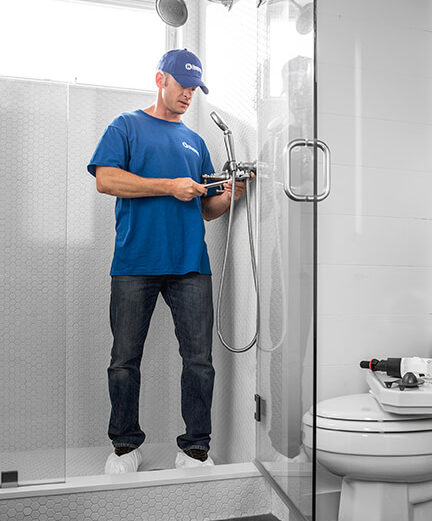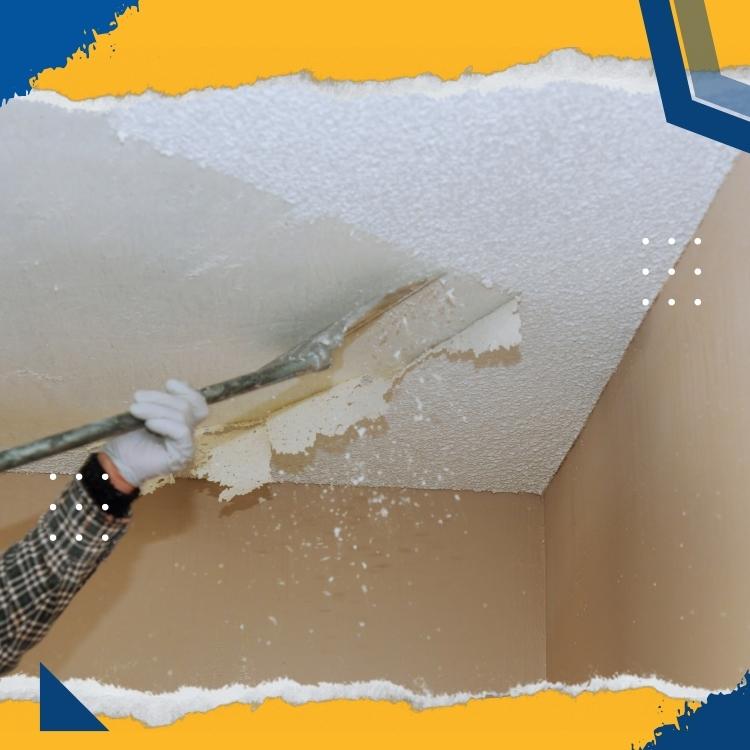We offer a wide range of services for that fresh look, or just maintenance or updates to keep your home functioning and safe. Regardless of the size of the job, we have a craftsman that can tackle it. We offer a wide range of services for that fresh look, or just maintenance or updates to keep your home functioning and safe. Regardless of the size of the job, we have a craftsman that can tackle it.

Drywall / July 13, 2022

Are there dangers involved in installing drywall yourself as opposed to hiring drywall services in Kelowna? Possibly. Drywall installation involves cutting sheets to the desired size and shape. After fastening them to the wall, the seams are filled in with joint compound, which is sanded down after it dries. Cutting the drywall sheets and sanding the joint compound can generate dust, which can have short- and long-term health effects.
Dust generated from drywall is very fine. Each individual particle has a diameter of about 10 microns, which is approximately one-seventh of the diameter of a human hair. The fine dust floating in the air can get into your eyes, which can cause them to become irritated. Because the particles are so fine, they are also easy to inhale. This can irritate the airways in your throat and nose.
Part of the reason that drywall is used in home construction is that its chemical structure is very stable. However, the chemical structure makes it slightly alkaline on the pH scale. A score of 7 on the pH scale is a neutral substance, neither more acidic nor more basic. Pool water is slightly basic with a pH of 7.4. The pH of drywall dust is 7.7, not enough to do long-term damage but enough to irritate your eyes similar to what you might experience after a day of swimming.
When you inhale drywall dust, your body doesn’t really have a way to expel it again. It could sit in the lungs for decades, potentially causing a condition called interstitial lung disease. This occurs when fine particles or dust build up in the lungs. It irritates the tissues of the lungs, causing scar tissue to form over time. The scar tissue is stiffer than healthy lung tissue, which makes it more difficult for the lungs to expand and take in oxygen. Symptoms of interstitial lung disease include the following:
Interstitial lung disease takes decades to develop. Once the scar tissue has developed in the lungs, there is no way to reverse it. Treatment for interstitial lung disease focuses on slowing the disease’s progress and improving symptoms.
Drywall and joint compound sometimes contain silica, a chemical that can be dangerous if breathed in. Silicosis, which occurs from breathing silica dust, is a particular type of interstitial lung disease. Silica-free drywall is available, so be sure to check the label before purchasing it if this is a concern.
Most people who develop interstitial lung disease from drywall dust are people who install it for a living rather than people who have tackled a few do-it-yourself projects in their lives. If you only do one or two drywall projects in your life, you are unlikely to develop them.
Nevertheless, if you decide to go the DIY route and want to protect yourself from the possible long-term and short-term effects of exposure to drywall dust, there are some things you can do. To avoid breathing in the dust, you can use a respirator or at least wear a dust mask. This can help prevent short-term irritation of your nose and throat as well as keep the dust particles from reaching your lungs. You can also protect your eyes from irritation by wearing goggles or wraparound glasses.
One way to minimize the risk of drywall dust exposure is to hire Handyman in Kelowna to install it for you. We take appropriate safety measures to protect you and your family and are happy to discuss any concerns you might have. Learn more about the many home repairs and installation jobs we perform in your area.